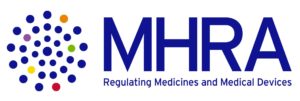Kawasaki Disease & Vaccines
Societi Foundation Statement on Kawasaki Disease and Vaccines
October 2018
This statement has the support of both the Medicines and Healthcare products Regulatory Agency and Public Health England.
We are aware of some discussions which have taken place regarding vaccinations and Kawasaki Disease – prompted by notes in some vaccine leaflets that “Kawasaki Disease is a rare side effect”.
Given the seriousness of this issue, we have consulted with experts within NHS England and the Medicines and Healthcare Products Regulatory Agency (MHRA) – who have responsibility in this area.
The MHRA have advised that “available evidence has not confirmed a causal association between any routine childhood immunisation and the development of Kawasaki Disease.” This means that we are not aware of any evidence which has been found to indicate that vaccines cause Kawasaki Disease.
They went on to advise that “Due to the natural peak incidence of Kawasaki Disease being around the same time that routine immunisations are given, a few cases will inevitably occur [in the same time period].” But reports of cases of Kawasaki Disease have not been more than the expected number of Kawasaki Disease cases which would occur anyway – this suggests they are coincidental with immunisations and have not been shown to be caused by any vaccine.
Q: So if there is no evidence for vaccines causing Kawasaki Disease – why is it sometimes listed as a “rare side effect”?
Illnesses are sometimes listed as possible side effects in product literature without the association with vaccination being proven. This was listed due to a very small number of cases being recorded in children at the time of the original vaccine trials, within a given time after having vaccinations. A thorough review found the cases to be consistent with natural rates, suggesting this is coincidental illness, not caused by a vaccine. Further research since that time that we are aware of shows no link has been established between any vaccines and Kawasaki Disease.
Q: My child has already had Kawasaki Disease – what do I do about their vaccinations?
Immunisation with all live vaccines should be deferred for at least 6 months following an episode of Kawasaki Disease treated with IVIG, mainly due to the potential lack of effectiveness of the vaccines following IVIG. After this, all vaccines should be administered as recommended by national guidance. As IVIG particularly suppresses the response to measles vaccine, and in line with recent international guidance, it is also suggested that MMR vaccine (and VZV vaccine) might be deferred for at least 11 months after IVIG treatment. Speak to your doctor if you think your child is at high risk of measles as they should be vaccinated earlier than this.
Q: I’m still concerned – what should I do?
Contact your GP to arrange a discussion, they will be able to discuss any remaining concerns.
About this statement:
This is a statement by Societi Foundation and our partners, supported by our Scientific Advisory Board Professors:
Professor Robert Tulloh
Professor Paul Brogan
The information contained in this statement is true and accurate to the best of Societi Foundation’s knowledge and belief, and is based on the information currently available to it. This statement does not give, and should not be construed as, medical advice.



